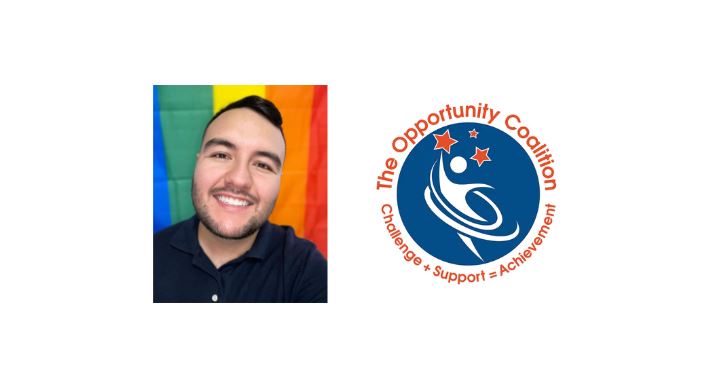Juan Ramirez is an IEA Educator Voice Academy Fellow who is sharing his story for the Opportunity Archive Project. The Opportunity Archive Project aims to collect stories about how our past has influenced our current and future racial, social and educational justice work. We believe these stories can help build solidarity and expand our collective vision for better futures. Here is Juan's story in his own words.
"As a young learner, I associated school with the feeling of not fitting in. I was made to feel different through cultural isolation. I was born and raised in a multigenerational Spanish-speaking household where English was rarely used. As an ESL student, I was pushed to learn and use English only while totally omitting my Spanish. While I am thankful for my teachers and paraprofessionals in helping me learn English, I was also want to recognize the efforts of my parents that were pressured into switching our home language to English to expedite my English language acquisition. My mom had told me that my Kindergarten teacher specifically said that if I didn’t learn English fast, I risked being held back from continuing onto the 1st grade. Therefore, my gains in English came at the expense of my Spanish, becoming less and less confident in my Spanish literacy skills as I was never provided the opportunity to practice them.
As a Mexican-American student progressing through the American school system, I faced microaggressions and outright racist remarks from peers. I still to this day remember a supposed friend asking “why do you study so much if you’re just going to end up cutting grass one day?” The lack of diverse representation in my high school’s curricula helped to perpetuate racial and ethnic stereotypes while failing to promote inclusivity. Unfortunately, racism followed me home as I had racist neighbors that went as far as to destroy my mom’s garden and water fountain in front of our house and purposefully pour pinto beans on top. These experiences made me feel embarrassed to be different from my mostly white peers. If I already had issues for being Mexican-American, imagine how much worse it would be if I had come out of the closet as gay? I never dared to be my authentic self from peer and societal pressure at the time. You may be asking then, why would someone who hated high school become a high school teacher? My reason for becoming a high school teacher was to make sure my students never leave school with the same experiences and negative emotions as me. I wanted to make a difference for our future and increasingly diverse generations. I wanted to show them that education can be a world of mirrors, one that reflects their various identities. Through designing my classes, I make concerted efforts to provide diverse representation in all of its forms, no matter the class. Just like the Educator Voice Academies project serves to elevate the voices of educators from marginalized communities, my classes serve as a platform to present the diverse perspectives of various marginalized groups and identities. By empowering my diverse students with an inclusive curriculum, my students will be more likely to make meaningful connections will improving their literacy skills. Outside of academics, I also sponsor Safe Space Meeting Place, an LGBTQ+ student club that serves to create a safe community space for LGBTQ+ students while also promoting inclusion throughout the building. Moreover, through teaching US History and Civics, I empower students to be empathetic and knowledgeable civic leaders of the future."
